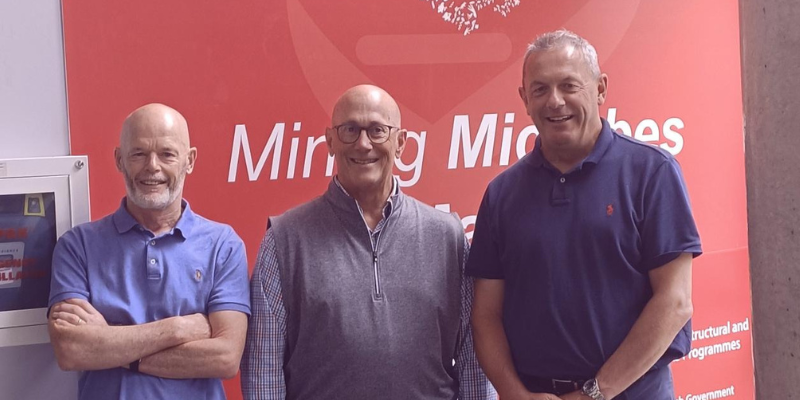News
APC and Adiso Announce Groundbreaking Research Highlighting ADS024

APC and Adiso Therapeutics, Inc. have a new publication “LPA3 agonist-producing Bacillus velezensis ADS024 is efficacious in multiple neuroinflammatory disease models” by Acton, et al., in Brain, Behavior, and Immunity, the official journal of the Psychoneuroimmunology Research Society (PNIRS).
Adiso Therapeutics, Inc., is a 2016 APC spinout who were shortlisted for the 2022 Knowledge Transfer Ireland Award. They are a clinical-stage biopharmaceutical company with a pipeline of development candidates dedicated to improving the health of patients suffering from debilitating inflammatory diseases.
Adiso collaborates with state-of-the-art research laboratories, including the APC Microbiome Ireland based at University College Cork, with whom the Adiso team worked across the boundaries of traditional research. Key APC researchers involved in the collaboration are Professors Paul Ross, Colin Hill and Dr Michelle O’Donnell.
The publication highlights the ability of ADS024 to impact outcomes via the gut-brain immune axis in a broad array of neurodegenerative diseases through the production of selective agonism of the LPA3 receptor (a G-protein coupled receptor) known to be involved in the modulation of inflammation and mitochondrial health. “Adiso has identified that ADS024 possesses specific LPA3 agonism. LPA3 and another receptor, LPA1, appear to work in opposition. While LPA1 antagonists are being developed in certain areas of neuroinflammatory indications within industry and academia, Adiso is the only one investigating an oral agent with effective LPA3 agonism activity”, shared Susan Acton, PhD, Head of Neuroinflammation Research at Adiso.
This research highlights the capabilities and determination of the Adiso team in developing a novel and differentiated oral single strain live biotherapeutic product (SS-LBP) for the treatment of neuroinflammatory diseases. “Demonstrating activity across a broad array of neurodegenerative disease models including PD, HD, MS, ALS, and peripheral neuropathy establishes that the MOA of ADS024 is involved in a fundamental pathway in these diseases.” said Scott Megaffin, Chief Executive Officer of Adiso Therapeutics.
APC Director and Co-Director of UCC Futures: Food Microbiome and Health Professor Paul Ross said “APC were delighted to work with Adiso supporting this important project which shows a potential role for the live biotherapeutics ADS024 in neuroinflammatory conditions.”
ADS024 represents a new class of therapeutics for the potential treatment of neuroinflammatory conditions. Clinical application of therapeutic bacteria represents a new approach in the future treatment for a range of human diseases.


